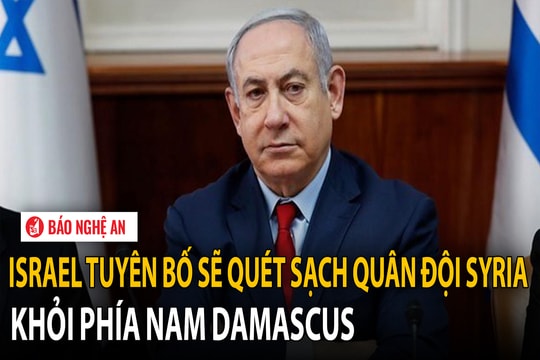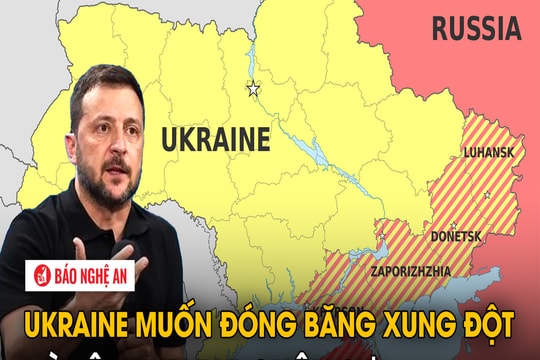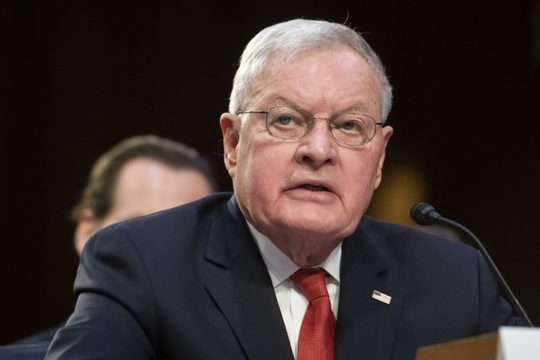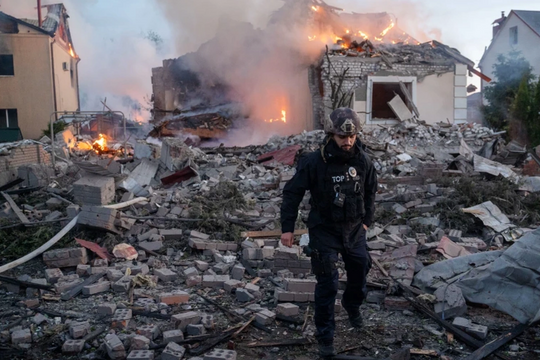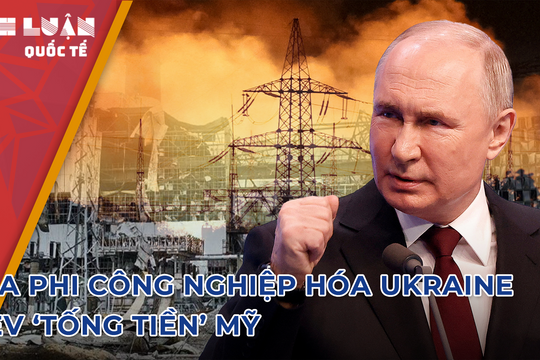Establishing the Idlib demilitarized zone: A turning point on the Syrian battlefield
(Baonghean) - October 15 will be a particularly important day for Syria in general and for more than 3 million people living in Idlib city in particular when the deadline to establish a demilitarized zone in Northwest Idlib ends.
If this demilitarized zone is successfully established, a bloody war in Idlib will be prevented, eliminating the risk of the worst humanitarian disaster in nearly eight years of conflict in Syria.
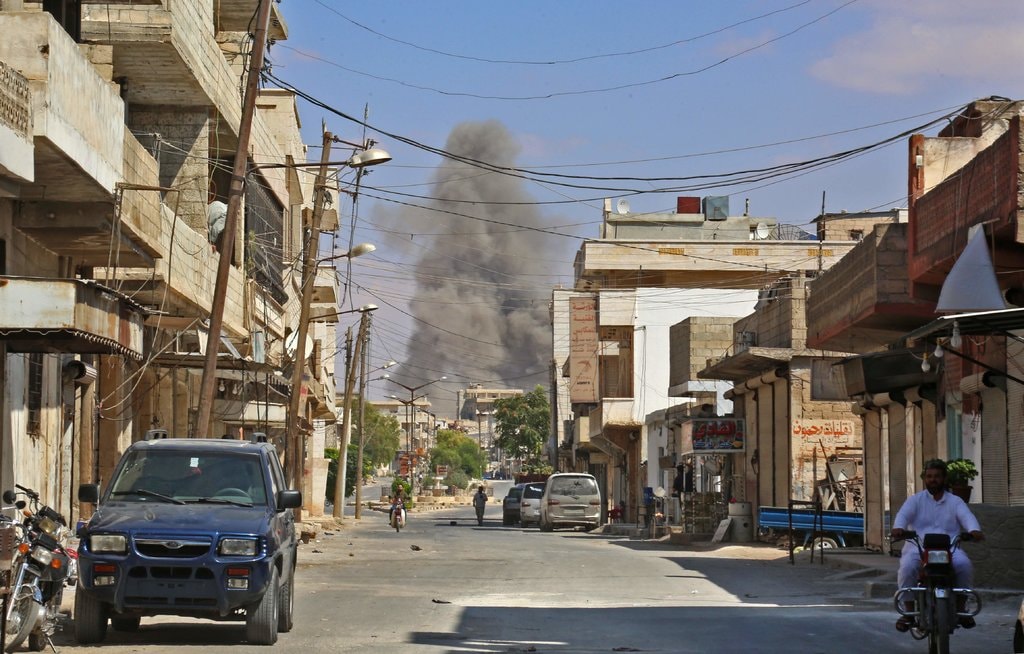 |
| Kafr Ain district in Idlib after an attack by Syrian government forces. Photo: Getty |
Idlib before "G hour"
The establishment of a demilitarized zone in Idlib is carried out according to an agreement reached between Russia and Türkiye in mid-September. Accordingly, the demilitarized zone will be 15-20 km wide, stretching from the areas between Aleppo, the northeastern countryside of Latakia province and Idlib.
Radical opposition forces must leave the demilitarized zone by today’s deadline (October 15), while heavy weapons must withdraw by October 10. Specifically, affiliated extremist groups are expected to withdraw from the buffer zone to areas further north.
Turkish-backed rebels in the area will be allowed to stay but are expected to remove their heavy weapons, a deal that would help avoid a Syrian government military offensive on the last rebel stronghold.
According to information from both Russia and Türkiye, the process of fighters and heavy weapons withdrawing from the demilitarized zone was carried out quite quickly with more than 1,000 gunmen and many heavy military weapons.
Rami Abdel Rahman, head of the Syrian Observatory for Human Rights, confirmed that no heavy weapons had been seen in the demilitarized zone since October 10.
Meanwhile, Turkey also confirmed that the National Liberation Front (NLF) backed by this country has also withdrawn all heavy weapons and fighters.
However, Mr. Rami Abdel Rahman also warned that it was not possible to be completely sure that heavy weapons had been removed from the demilitarized zone, because these weapons could have been moved by the militants to secret locations.
Worryingly, some extremists remain determined to hold out, even as the deadline approaches. These fighters belong to the Hayat Tahrir al-Sham (HTS) group, a rebel group led by a former member of Al-Qaeda, and Hurras al-Deen (a rebel group also linked to Al-Qaeda).
These two groups are the main rebel forces controlling more than two-thirds of Idlib’s territory. Although the October 15 deadline is approaching, HTS has yet to officially respond to the agreement between Russia and Türkiye.
According to analysts, many HTS fighters have been fighting for years in the Syrian battlefield under the name of different rebel groups. As the Syrian government forces have controlled most of the country, these fighters want to maintain their influence in the last stronghold of Idlib.
HTS is betting that with Türkiye’s support, it has a “golden opportunity” to establish new roots in Idlib. Therefore, whether the demilitarized zone is formed by the deadline or not depends largely on Türkiye’s ability to convince the remaining militants in Idlib to leave the area within today.
Precious "silence"
A month ago, Idlib was expected to witness a “firestorm”, when the Syrian government army announced it would launch a major attack on the last stronghold held by rebel forces.
The international community has been extremely concerned about this prospect, warning of the worst humanitarian disaster since the conflict in Syria broke out eight years ago. Therefore, the agreement between Russia and Türkiye is considered to have helped "defuse" the "Idlib powder keg".
However, analysts are cautious that the establishment of a demilitarized zone is just a “pause button” at the present time and not the final solution for Idlib. It can only delay but cannot eliminate the attack that the Syrian government will launch on this stronghold.
 |
| Syrian President Bashar al Assad, despite supporting the Russia-Türkiye agreement, warned that it was only a “temporary measure.” Photo: Sputnik |
Syrian President Bashar al Assad himself, although supporting the Russia-Turkey agreement, has not forgotten to warn that this is only a "temporary measure". According to some Russian and Syrian sources, the next plan after establishing a demilitarized zone today (October 15) is for rebel groups to withdraw heavy weapons across the entire Idlib province in November, after which the Syrian government will re-establish control over the province by the end of the year.
However, Naji Mustafa - a spokesman for the rebel forces said they will not accept this plan nor accept the return of the Syrian government to any area in Idlib province.
Whatever happens next in Idlib, it is worth noting that the agreement between Russia and Türkiye is one of the few that has been agreed upon by all warring parties in Syria so far, as they all recognize the value that this “silence” brings.
By establishing a demilitarized zone in Idlib, the Syrian government has many advantages to conduct anti-terrorist operations in other "small" areas as well as have time to prepare for a major battle that "may still happen", to complete the ultimate goal of completely liberating the country.
In turn, the rebel forces in Idlib have avoided a battle they have little chance of winning, and in the meantime, they can continue to seek agreements with their outside backers before the two sides have to enter a decisive moment over Idlib’s ultimate fate.
The “relief” inside the Idlib stronghold was evident with residents taking to the streets of the province to celebrate not being caught in a bloody battle.
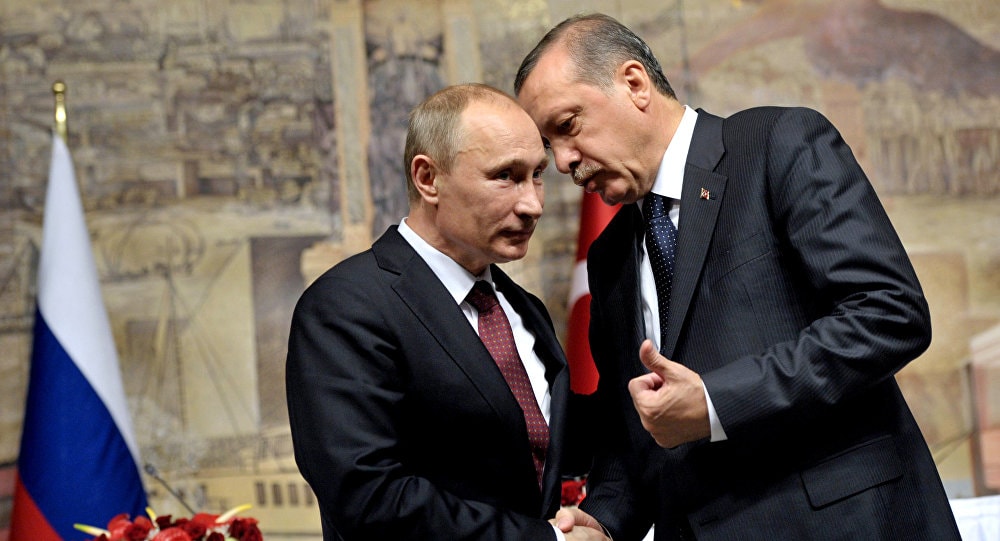 |
| The fate of Idlib depends on the calculations of Russia and Türkiye. Photo: Sputnik |
The agreement to establish a demilitarized zone in Idlib is said to demonstrate the strong geopolitical connection between Russia and Turkey. Russia needs to align with Türkiye to ensure its larger ambitions in the future in establishing influence in the region, not only in the Syrian battlefield.
Meanwhile, Türkiye also needs Russia to counterbalance the US - a country that still supports Kurdish militias in northeastern Syria, which Türkiye still considers its "biggest threat".
If Türkiye can convince rebel groups to withdraw from the demilitarized zone today as agreed with Russia, it will be the strongest demonstration yet of how much influence Russia and Türkiye have over forces on the Syrian battlefield.
And if the two sides succeed with this agreement, public opinion has reason to wait for another breakthrough solution that Russia and Türkiye can come up with, instead of having to conduct a "do or die" battle to decide the fate of Idlib.

